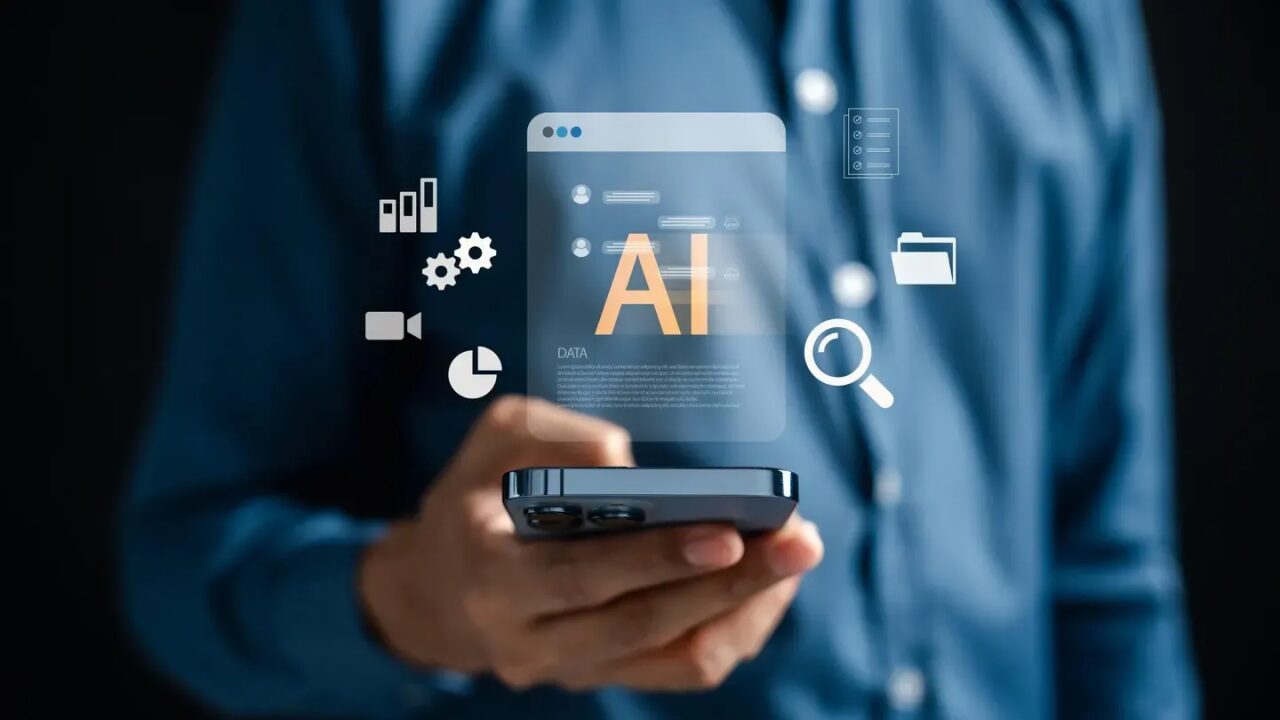How Generative AI Will Enhance The Supply Chain
4 March 2024
Savvy business leaders are already beginning to identify use cases for generative AI in their organizations. From customer service to marketing and HR, generative AI’s ability to analyze data and generate content in a variety of formats can add significant value to internal business processes. But what about the supply chain?
AI, in general, has been making waves in supply chain functions for a while now – particularly when it comes to demand planning and optimizing delivery. So, how can generative AI build on that evolution and add extra functionality? Read on to find out how the technology can further improve the supply chain.
What Is Generative AI Capable Of?
Before we look at some specific supply chain use cases, let’s quickly recap what the technology popularized by ChatGPT can actually do.

· Generative AI can automatically create content across a variety of formats, including text, images, and video.
· Generative AI can interpret requests in a variety of formats, too – most commonly as conversational text requests. This means you don’t need to be a data scientist or programmer to harness generative AI – you simply ask for what you want. Some generative AI tools can also respond to visual cues (such as images) and spoken requests.
· Generative AI can analyze vast quantities of data (potentially in real-time), including text data, numerical data, and image data.
· Generative AI can also summarize data and produce easy-to-action reports and recommendations based on the data.
With these capabilities in mind, it’s easy to imagine how generative AI could aid supply chains. But let’s explore what that looks like in practice.
Forecasting Demand And Managing Risk
Generative AI’s ability to analyze vast amounts of historical and real-time data – and provide conversational answers – can make planning much easier. Because instead of navigating a complex analytical tool, you can simply ask conversational questions that help you forecast demand. Questions such as, “What are the biggest market trends that may impact our demand forecasting?” or “How can we plan for alternative suppliers in case of a major global disruption?” or “What are our biggest risks around meeting customer demand?”
In other words, generative AI strips away some of the complexity around using technology for demand forecasting. And don’t forget generative AI tools can also recommend actions based on what the data suggests.
Sourcing And Managing Suppliers
Generative AI can add value to the supplier selection process by analyzing factors such as supplier capabilities, pricing, potential risk, and other factors. Plus, by analyzing supplier data and communications, generative AI can identify insights from supplier interactions and suggest new ways to improve relationships.
Automating Negotiations With Vendors
One potentially surprising use of generative AI is using it to negotiate with vendors – a chatbot, basically, that negotiates cost and other contract terms with vendors. One major US retailer that has been automating vendor negotiations found that not only did it reduce costs and cut negotiation time, but more than 65 percent of vendors actually preferred negotiating with the bot over a human.
And if handing over negotiations to a bot makes you nervous, you can still use generative AI to analyze contracts, compare contract terms, provide recommendations, and even identify contractual risks.
Optimizing Logistics
Organizations have been using AI tools to optimize logistics for a few years now (such as tools that improve picking routes in the warehouse or using AI to design the most efficient delivery route for drivers). But generative AI brings a new level of functionality to AI-driven logistics by enabling a conversational interface – meaning users can simply ask the tool for recommendations. In other words, this brings even more opportunities to customize logistics on the fly.
Enhancing The Production Process
Of course, generative AI can also improve the production of goods. Two of the most impactful examples include accelerating the design process with AI-enhanced design tools and using predictive maintenance to determine which machines or production lines are most likely to fail (thereby enabling timely maintenance and less machine downtime).
But Isn’t This More Disruption For Already Stretched Supply Chains?
To say that supply chains have come under enormous stress over the last few years is, well, a bit of an understatement. And while it may seem like the worst time to be introducing yet more change in the form of transformative new technology, the opposite is true. Because generative AI can help supply chain professionals roll with rapid change and adapt operations more easily. It is, in short, a game-changer for supply chains.
Supply chains have always been in a state of evolution. Generative AI is the latest technology to offer improvements and innovation – potentially the most transformative technology – but it won’t be the last. As has always been the case, those organizations that can embrace transformation in a strategic, thoughtful way are most likely to succeed. Everyone else risks being left behind.
Related Articles
7 Legal Tech Trends That Will Reshape Every Business in 2026
By now, “smart” versions exist of just about every home appliance, gadget and gizmos we can think of. However, manufacturers continue[...]
8 Skills You Need To Manage The New AI Agent Workforce
By now, “smart” versions exist of just about every home appliance, gadget and gizmos we can think of. However, manufacturers continue[...]
Should AI Have Free Speech?
By now, “smart” versions exist of just about every home appliance, gadget and gizmos we can think of. However, manufacturers continue[...]
5 Amazing AI Agent Use Cases That Will Transform Any Business In 2026
By now, “smart” versions exist of just about every home appliance, gadget and gizmos we can think of. However, manufacturers continue[...]
8 Smartphone Trends That Will Shape 2026
By now, “smart” versions exist of just about every home appliance, gadget and gizmos we can think of. However, manufacturers continue[...]
7 Media Trends That Will Redefine Entertainment In 2026
By now, “smart” versions exist of just about every home appliance, gadget and gizmos we can think of. However, manufacturers continue[...]
Sign up to Stay in Touch!
Bernard Marr is a world-renowned futurist, influencer and thought leader in the fields of business and technology, with a passion for using technology for the good of humanity.
He is a best-selling author of over 20 books, writes a regular column for Forbes and advises and coaches many of the world’s best-known organisations.
He has a combined following of 4 million people across his social media channels and newsletters and was ranked by LinkedIn as one of the top 5 business influencers in the world.
Bernard’s latest book is ‘Generative AI in Practice’.










Social Media